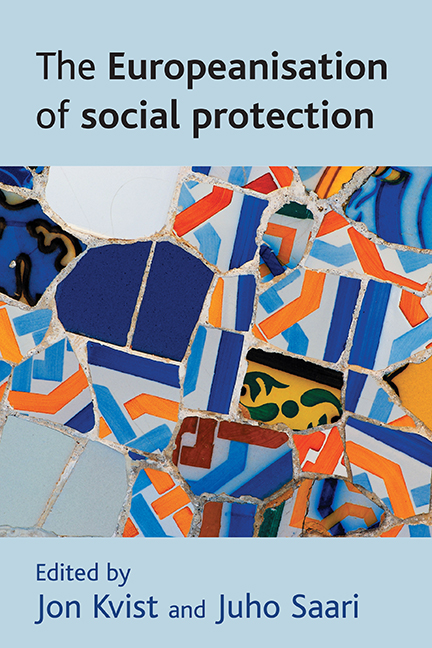Book contents
- Frontmatter
- Contents
- List of tables and figures
- Foreword: The European Union’s evolving social policy and national models – seeking a new balance
- Acknowledgements
- List of abbreviations
- List of contributors
- one European Union developments and national social protection
- two Germany: moving towards Europe but putting national autonomy first
- three The United Kingdom: more an economic than a social European
- four France: defending our model
- five Italy: between indifference, exploitation and the construction of a national interest
- six Poland: redefining social policies
- seven Spain: starting from periphery, becoming centre
- eight The Czech Republic: tradition compatible with modernisation?
- nine Finland: towards more proactive policies
- ten The Netherlands: social and economic normalisation in an era of European Union controversy
- eleven Denmark: from foot dragging to pace setting in European Union social policy
- twelve Greece: the quest for national welfare expansion through more social Europe
- thirteen The Europeanisation of social protection: domestic impacts and national responses
- fourteen Seeking a new balance
- References
- Index
three - The United Kingdom: more an economic than a social European
Published online by Cambridge University Press: 15 September 2022
- Frontmatter
- Contents
- List of tables and figures
- Foreword: The European Union’s evolving social policy and national models – seeking a new balance
- Acknowledgements
- List of abbreviations
- List of contributors
- one European Union developments and national social protection
- two Germany: moving towards Europe but putting national autonomy first
- three The United Kingdom: more an economic than a social European
- four France: defending our model
- five Italy: between indifference, exploitation and the construction of a national interest
- six Poland: redefining social policies
- seven Spain: starting from periphery, becoming centre
- eight The Czech Republic: tradition compatible with modernisation?
- nine Finland: towards more proactive policies
- ten The Netherlands: social and economic normalisation in an era of European Union controversy
- eleven Denmark: from foot dragging to pace setting in European Union social policy
- twelve Greece: the quest for national welfare expansion through more social Europe
- thirteen The Europeanisation of social protection: domestic impacts and national responses
- fourteen Seeking a new balance
- References
- Index
Summary
As a country's social policy reflects its values, understanding and anticipating a country's position on social policy first calls for identifying its ideological framework. In the United Kingdom, belief in the autonomy of the individual, the need to protect and assist the vulnerable, and a focus on economic growth to provide opportunity for all defines the role of government. It is through this framework that the UK considers both domestic and European Community policies.
This chapter covers European social policy from the UK's perspective. The first section spells out some of the fundamental differences (both perceived and real) between the European social model (ESM) and the UK social model, and discusses how these fuel the UK's basic attitudes towards European social policy. The second describes recent reforms in some areas of UK social policy and discusses how European or other international models have influenced these reforms. The third section summarises the national responses to European Union (EU) social policy initiatives. There is a brief concluding section.
The European social model versus the UK model
In discussing issues of this kind, distinguishing between actuality and perception is important. There are two actualities, and two perceptions of those actualities, that we need to consider here: first, the actual ESM versus the UK's perception of that model; second, the actual UK model versus the rest of Europe's perception of that model. With respect to the first issue, not one ESM but a wide variety of models exists. The first attempt to put some order on that variety by classifying European and other industrialised country welfare states was undertaken by Esping-Andersen (1990), where he identified three types: liberal (basically Anglo-Saxon countries), social democratic (basically Scandinavia) and conservative (everyone else). Since then, others have attempted to refine or replace his classification, including Esping-Andersen himself (Leibfried, 1992; Castles and Mitchell, 1999; Esping-Andersen, 1999; Goodin et al, 1999). The most recent – and the most useful – of these is that of Karl Aiginger and Alois Guger (Aiginger and Guger, 2006). They have identified three spectra along which ESMs can differ: the balance of responsibility between the state and the individual; the extent of formal and informal regulation, especially in the labour market; and the extent and form of redistribution.
- Type
- Chapter
- Information
- The Europeanisation of Social Protection , pp. 41 - 60Publisher: Bristol University PressPrint publication year: 2007

